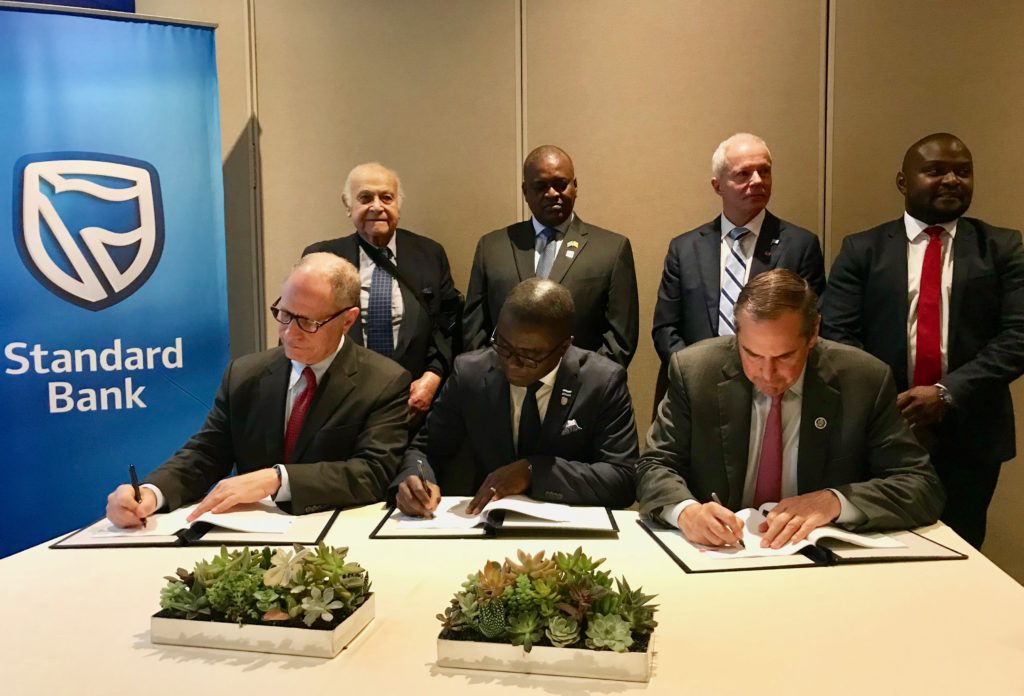
THE AFRICA BAZAAR MAGAZINE
February 12, 2019
Ray W. Washburne, President and Chief Executive Officer of the Overseas Private Investment Corporation, announced on Tuesday that he will leave the U.S. government’s development finance agency on March 1.
David Bohigian, the current executive vice President of OPIC will take over the duties of President and CEO at the agency.
OPIC was up for elimination in 2017 when Mr. Washburne took the helm at the agency in August 2017. He was pivotal in convincing Congress and the White House not to eliminate the agency but to double the agency’s budget and use it as a tool of national security in U.S. foreign policy.
In 2017, OPIC made $260 million in profits from its investments.
As head of OPIC, he helped raise U.S. investment visibility in the developing world, including in Africa and Latin America.
Mr. Washburne has been instrumental in U.S. countering back at China in Africa as well as in minimizing America’s investment gap in the continent by seeking new opportunities and executing deals with African governments, and businesses, leveraging the American private sector.
OPIC has investments across Africa, including in Stanbic Bank Botswana, Botswana Finance, LLC, African Cellular Communications, and Kiva Microfunds, Kenya, Uganda, and Ghana.
Last year, OPIC launched a new African program, Connect Africa, an initiative aimed at mobilizing $1 billion investments from the private sector to invest over three years period in African projects that improve connectivity on the continent and support infrastructure, including railways, ports, roads and airports, technology, and value chains. As part of the initiative, 25 percent of the investments will help fund women-owned businesses, development and projects to help close the gender gap and empower women, economically.
While Mr. Washburne’s exit news came as a surprise to many in the international community, experts do not expect his sudden departure from the agency to interrupt any pending trade deals with African countries or any of the developing economies where OPIC has investments.
Todd Moss, a former U.S. Deputy Assistant Secretary of State and senior fellow at the Center for Global Development, a Washington D.C.-based think-tank, said he does not expect Mr. Washburne’s departure from the agency to affect U.S. investments in Africa.
“OPIC is an agency with a very deep bench. I do not expect Washburne’s departure to slow plans to build a robust US Development Finance Corporation that boosts investment to Africa and supports women entrepreneurs around the world,” said Mr. Moss.
In a statement, Mr. Washburne said he is tremendously proud of the work he and his dedicated team at OPIC have accomplished with the Trump Administration “to advance the Better Utilization of Investments Leading to Development (BUILD) Act into law, which experts have called the biggest advance in U.S. development policy in a generation.”
“We are having real impact around the world. OPIC’s 2X Women’s Initiative has helped set the standard for investing in women; our work in the Northern Triangle has mobilized more than $1 billion in capital to help bring greater prosperity and stability to the region; and our Connect Africa Initiative is focused on supporting critical infrastructure, technology and value chains on the continent,” he said.
Mr. Washburne plans to return to his hometown in Dallas, TX.



